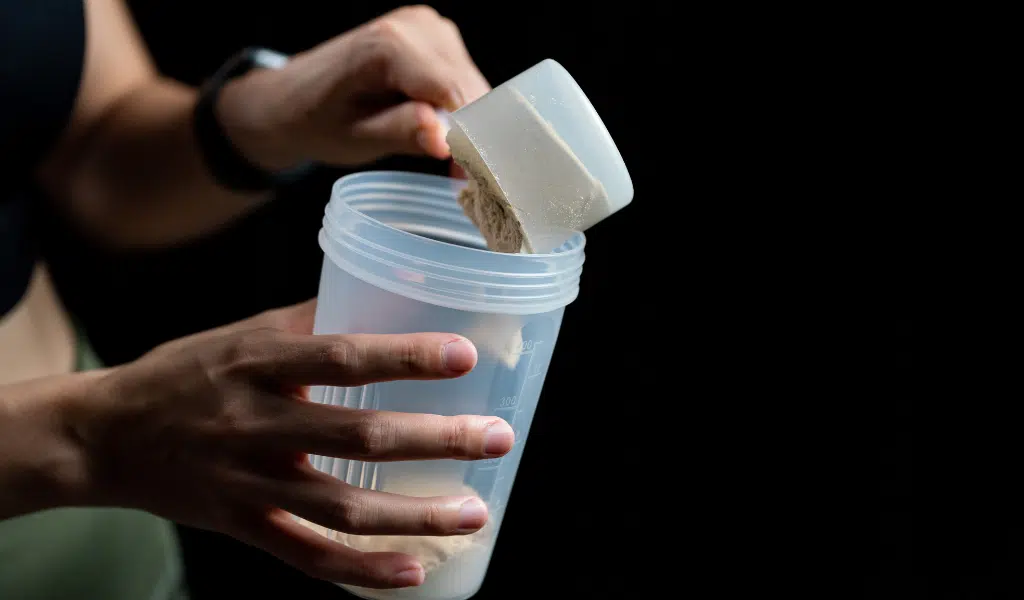When it comes to the world of fitness and sports nutrition, creatine stands as one of the most renowned and widely used supplements. As enthusiasts and athletes seek to optimize their performance and build impressive physiques, the question often arises: Does creatine have calories?
Understanding the caloric content of creatine is crucial for those looking to fine-tune their dietary plans and make informed decisions about their supplementation. Join us as we delve into the science behind creatine and its impact on our calorie intake and overall fitness goals.
What is Creatine?
Creatine is a naturally occurring organic compound that is found in small amounts in certain foods and is also synthesized in the human body. It plays a crucial role in providing energy to cells, particularly during short bursts of intense physical activity. Creatine is primarily stored in the muscles and brain.
As a popular dietary supplement, creatine is commonly used by athletes, bodybuilders, and fitness enthusiasts to enhance athletic performance, increase muscle mass, and improve exercise capacity. When taken as a supplement, creatine is usually in the form of creatine monohydrate, which is a white, odorless, and tasteless powder that can be mixed with water or other beverages.
The main mechanism of action of creatine involves increasing the body’s supply of phosphocreatine, a high-energy compound used to regenerate adenosine triphosphate (ATP). ATP is the primary energy currency in cells, and during intense physical activities like weightlifting or sprinting, the demand for ATP increases. Creatine supplementation can help supply the muscles with more readily available ATP, which may lead to improved performance and reduced fatigue during short, high-intensity exercises.
It’s important to note that while creatine has been extensively studied and is generally considered safe for most individuals when taken within recommended dosages, it may not be suitable for everyone. Individuals with pre-existing kidney or liver conditions, as well as pregnant or breastfeeding women, should exercise caution and consult with a healthcare professional before starting creatine supplementation. If you want you can also read on 10 best flavored creatine.
Does Creatine have Calories?
Yes, Creatine is calorie-free, meaning it contains absolutely no calories. Despite its weight or density, it won’t contribute any calories when consumed.
It’s important to note that while Creatine itself doesn’t provide calories, it won’t affect the number of calories your body burns during digestion. Whether you exercise or not, taking Creatine won’t lead to any caloric gain. However, it’s essential to keep track of the calories from your regular meals to maintain a balanced diet, especially when incorporating Creatine into your routine.
Calories in Creatine Supplements
Most common Creatine brands offer products with zero calories. However, it’s worth checking the nutritional information of specific Creatine monohydrate supplements, such as BSC Creatine, which contains 12 calories per serving.
Creatine and Protein
Creatine is a type of amino acid naturally synthesized in the body and is not a source of the protein itself. Unlike protein, which consists of a chain of various amino acids, Creatine is a singular compound.
While Creatine doesn’t provide protein directly, it does play a role in enhancing protein processing and absorption within the body. By facilitating energy production and utilization, Creatine can support protein functions effectively. It’s essential to be aware that the outcome may vary when combining protein with Creatine.
Creatine Monohydrate Nutrition Facts
Now let’s check out the nutritional value of Creatine Monohydrate. Data is taken from My Net Diary
|
Aspects |
Serving Size (5g) |
% Daily Value |
|
Calories |
20 |
|
|
Total Fat |
0g |
|
|
Saturated Fat |
0g |
|
|
Sodium |
0mg |
|
|
Total Carbs |
0g |
|
|
Total Sugars |
0g |
|
|
Protein |
5g |
10% |
Note: The “Grade” and “Amount Eaten” columns are not included in the table as they are not part of the nutrition facts. The values for Total Fat, Saturated Fat, Sodium, Total Carbs, Total Sugars, and Protein are based on a serving size of 5g of Creatine Monohydrate from Primabolics.
Does Creatine have Caffeine?
It’s important to emphasize that Creatine itself does not contain caffeine. There is a common misconception that caffeine is present in Creatine, likely because some individuals take Pre-workout supplements that often include caffeine as an ingredient.
However, it’s crucial to understand that Creatine and caffeine can be taken together without any interference with their individual functions. If you choose to consume both Pre-workout, which may contain caffeine, and Creatine simultaneously, there is generally no issue as long as the correct dosages are followed.
It’s worth noting that Creatine and caffeine are distinct substances, and their combination is generally considered safe and effective for individuals seeking to build muscle mass. As with any supplements, it is advisable to consult with a healthcare professional or fitness expert to ensure proper usage and dosage for your specific needs and goals.
Will Creatine Make You Fat?
It’s important to understand that creatine itself does not lead to fat gain. Instead, its primary purpose is to support muscle gain, and it contains no calories, which means it doesn’t contribute to fat accumulation.
However, some individuals may notice an increase in their overall weight while using creatine, and there are three main reasons for this phenomenon:
- Muscle Mass: When using creatine, intensified workouts can lead to increased muscle activity and growth, resulting in a shift in overall body mass due to the development of muscle tissue.
- Water Weight: Creatine has a water retention effect, and increased water consumption is common when taking it as a supplement. This can lead to temporary water weight gain, causing a feeling of heaviness or puffiness. Typically, water retention can account for around 2 to 4.5 pounds of additional weight.
- Bloating: During the loading phase, a higher dosage of creatine may be consumed. If adequate water intake is not maintained, creatine may not dissolve properly, leading to bloating as the stomach draws water from surrounding tissues. This can also contribute to a temporary increase in body weight.
Moreover, it’s essential to consider other factors that might cause weight gain unrelated to muscle or water retention, such as an increase in non-muscle weight. In such cases, weight gain could be a result of consuming more calories than what is being expended through exercise and daily activities.
To make the most of creatine supplementation without significant weight gain, it’s advisable to engage in regular exercise and adhere to a balanced diet. This way, any additional caloric intake can be compensated for by increased energy expenditure, promoting muscle development while minimizing the risk of unwanted fat gain.
Will Creatine Help in Weight Loss?
It’s essential to understand that Creatine is not directly associated with weight loss programs. Generally, no supplement is specifically designed for weight loss purposes. Instead, supplements like Creatine are primarily used to enhance energy levels and support intense workouts and training sessions.
By providing an energy boost, Creatine enables individuals to engage in more vigorous exercise routines, which, in turn, can aid in burning some fat. Moreover, increased energy levels can contribute to a faster metabolism, leading to improved fat and carbohydrate burning and potentially resulting in weight loss over time.
When used in combination with intensive workouts, Creatine can help increase lean muscle mass and facilitate faster muscle cell recovery, promoting the development of lean muscles without fat gain.
If you’re considering using Creatine to potentially aid weight loss, Creatine monohydrate is a popular choice. However, it’s crucial to note that achieving weight loss goals with Creatine requires dedicated and challenging exercise routines. If you’re interested check on – does creatine make you fat?
Tricks to Manage Temporary Water Weight
Temporary water weight gain is a common occurrence with Creatine use. To mitigate this effect, consider the following tricks:
- Increase Water Intake: Drinking more water can stimulate increased urine production, helping the body flush out excess water and reduce water retention.
- Limit Sodium Intake: Reducing salt consumption to around 2300 mg daily can help prevent excessive water retention caused by high sodium levels in the body.
- Moderate Carbs and Fat: While carbohydrates are essential for energy, aim for a controlled intake of 225 to 325g daily to avoid excess carb-related water retention.
- Regular Exercise: Engaging in consistent and frequent exercise, especially after taking Creatine, can aid in utilizing the additional energy and potentially reduce water weight.
- Patience: Keep in mind that water weight gain from Creatine is temporary and typically subsides when the dosage is adjusted or reduced after a few days.
Benefits And Drawbacks of Creatine
Below we’ll check out the major benefits and drawbacks of creatine.
Benefits of Creatine
- Improved Exercise Performance: Creatine supplementation has been shown to enhance exercise performance, particularly during short-duration, high-intensity activities like weightlifting, sprinting, and jumping. It helps increase the availability of ATP, the primary energy source for muscle contractions, leading to improved strength, power, and endurance.
- Increased Muscle Mass: Creatine has the potential to promote muscle growth by increasing water content in muscle cells and stimulating protein synthesis. This can result in greater muscle volume and size, particularly when combined with resistance training.
- Faster Recovery: Studies suggest that creatine may aid in muscle recovery after intense workouts by reducing muscle damage and inflammation, allowing individuals to train more frequently and with shorter recovery times.
- Enhanced Brain Function: Creatine is also found in the brain, and some research suggests that it may have neuroprotective effects and help improve cognitive function and memory in certain populations.
- Safe and Well-Tolerated: When taken within recommended dosages, creatine is generally considered safe for most healthy individuals. It has been extensively studied, and no significant adverse effects have been reported in the long term.
Drawbacks of Creatine
- Water Weight Gain: Creatine supplementation can lead to temporary water retention in muscle cells, causing a slight increase in body weight. While this can contribute to a fuller appearance and increased muscle size, some individuals may find it undesirable, especially for those looking to maintain a specific weight category for sports.
- Individual Response: Not everyone responds to creatine supplementation in the same way. While many individuals experience significant benefits, others may see little to no improvement in exercise performance or muscle growth.
- Gastrointestinal Distress: Some people may experience mild gastrointestinal issues like stomach cramps, nausea, or diarrhea when taking creatine. However, these side effects are usually temporary and can often be avoided by consuming the supplement with plenty of water or by reducing the dosage.
- Kidney and Liver Concerns: Although creatine is considered safe for most healthy individuals, individuals with pre-existing kidney or liver conditions should use caution and consult with a healthcare professional before starting creatine supplementation.
- Not Suitable for Long-Endurance Activities: While creatine is highly effective for short, intense bursts of activity, it may not offer the same benefits for long-endurance exercises like distance running or cycling.
Frequently Asked Questions (FAQs)
Now get some common questions related to the topic – does creatine have calories
Can taking creatine lead to weight gain due to its calorie content?
No, creatine itself does not contribute to weight gain as it has zero calories. However, temporary weight gain may occur due to water retention, which is a common effect of creatine supplementation.
Is it safe to combine creatine with calorie-containing supplements or foods?
Yes, it is safe to combine creatine with other calorie-containing supplements or foods. Creatine’s calorie-free nature means it won’t add to your overall caloric intake.
Will taking creatine interfere with calorie burning after meals?
No, creatine does not affect the number of calories burned during digestion. Whether you take creatine or not, the calories burned after meals remain unaffected.
Can I use creatine as part of a weight-loss program?
While creatine itself does not directly cause weight loss, it can be used to support exercise and muscle growth, which may indirectly aid in weight management. However, achieving weight loss goals still requires a balanced diet and a comprehensive fitness routine.
Takeaway
In conclusion, the allure of creatine lies in its ability to boost athletic performance and muscle growth without adding a single calorie to your diet. This powerhouse supplement remains a popular choice among fitness enthusiasts and athletes worldwide, thanks to its well-established benefits and safety profile. Whether you’re striving for peak performance on the field or seeking to sculpt your dream physique, creatine can play a key role in your journey.
So, the next time someone asks, “Does creatine have calories?” you can confidently answer that this remarkable supplement brings gains without tipping the calorie scales.











































